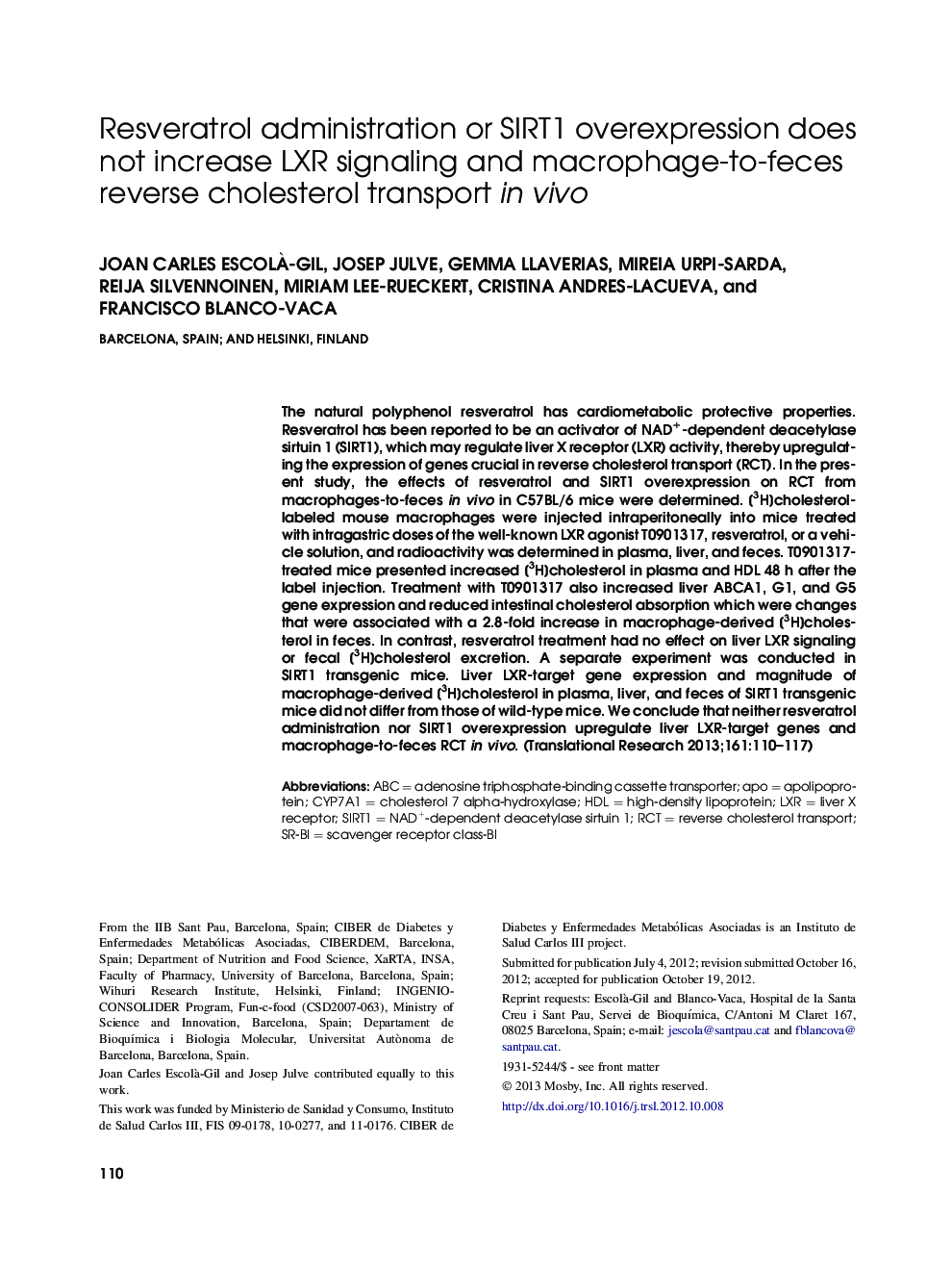| Article ID | Journal | Published Year | Pages | File Type |
|---|---|---|---|---|
| 3840487 | Translational Research | 2013 | 8 Pages |
The natural polyphenol resveratrol has cardiometabolic protective properties. Resveratrol has been reported to be an activator of NAD+-dependent deacetylase sirtuin 1 (SIRT1), which may regulate liver X receptor (LXR) activity, thereby upregulating the expression of genes crucial in reverse cholesterol transport (RCT). In the present study, the effects of resveratrol and SIRT1 overexpression on RCT from macrophages-to-feces in vivo in C57BL/6 mice were determined. [3H]cholesterol-labeled mouse macrophages were injected intraperitoneally into mice treated with intragastric doses of the well-known LXR agonist T0901317, resveratrol, or a vehicle solution, and radioactivity was determined in plasma, liver, and feces. T0901317-treated mice presented increased [3H]cholesterol in plasma and HDL 48 h after the label injection. Treatment with T0901317 also increased liver ABCA1, G1, and G5 gene expression and reduced intestinal cholesterol absorption which were changes that were associated with a 2.8-fold increase in macrophage-derived [3H]cholesterol in feces. In contrast, resveratrol treatment had no effect on liver LXR signaling or fecal [3H]cholesterol excretion. A separate experiment was conducted in SIRT1 transgenic mice. Liver LXR-target gene expression and magnitude of macrophage-derived [3H]cholesterol in plasma, liver, and feces of SIRT1 transgenic mice did not differ from those of wild-type mice. We conclude that neither resveratrol administration nor SIRT1 overexpression upregulate liver LXR-target genes and macrophage-to-feces RCT in vivo.
